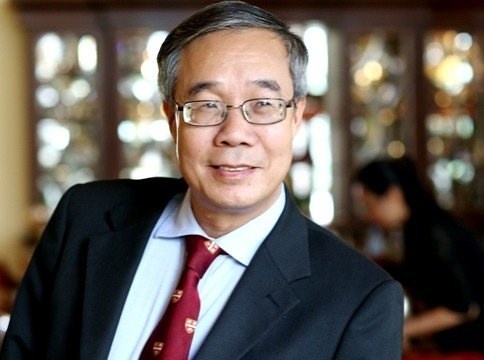An Environment of Academic Freedom Is Crucial for the Development of Elite Education
Editor’s Note: University autonomy in Vietnam is clearly defined by the Higher Education Law, but there are still different views on autonomy or self-governance.
The series on “University Autonomy” published on the Vietnam Education Online Newspaper recently has attracted special attention from experts and those interested in higher education.
They have participated in the process of criticism, giving feedback, and finding solutions to a series of policies and guidelines of the education sector over time.
Through the discussion on university autonomy, Mr. Tran Duc Canh – an expert with many years of experience in management and policy-making for Training and Human Resource Development Programs in Massachusetts (USA) – had an interview with Vietnam Education Online about this topic.
This is Mr. Tran Duc Canh’s personal opinion on university autonomy in Vietnam compared to the autonomy applied in the United States, which also serves as a significant reference and suggestion.
We respectfully introduce it to our readers.
Responsibility is key to achieving effectiveness
Interviewer: First of all, how should the concept of university autonomy be understood, sir?
Mr. Tran Duc Canh: In advanced education systems, the term “university autonomy” is rarely mentioned because it is taken for granted.
University autonomy must encompass academic freedom, organization and management, and financial independence. The latter two are the necessary conditions, and the first is the goal.
Academic freedom is the soul of the university; without academic freedom, we cannot educate creative individuals with knowledge and logical thinking suitable for the times.

Mr. Tran Duc Canh
What are the specific powers and responsibilities of an autonomous university, according to you? The significance of university autonomy is immense in the development of higher education in Vietnam today, especially in the context of global integration happening around us. The Higher Education Law has somewhat clarified the concept of university autonomy.
Mr. Tran Duc Canh: University autonomy, or any other management area, must always link power with responsibility, specifically for each position and organization, rather than collective responsibility that ultimately leads to no one being accountable.
A public or private university must have the right to manage, operate, and be responsible to achieve effectiveness.
Designing an organizational system, whether large or small, that balances power and responsibility is not difficult; successfully applying it to any environment or condition is another matter.
The University Council or Board of Trustees is the highest authority in a university, followed by the President and the Board of Management.
There is a view that granting university autonomy means that all universities enjoy the same level of autonomy. Is this correct?
Mr. Tran Duc Canh: From an academic perspective, the spirit of autonomy should be the same, but from an organizational and management perspective, it can differ between public and private university systems.
Additionally, in cases such as newly established universities or those under sanctions, the level of autonomy may be limited. The long-term goal of university autonomy is the stability and development conditions for the entire university system, so the impact of external decisions and factors, whether direct or indirect, on the academic environment must be minimized.
As public assets receiving financial support from the state, public universities must still be accountable to their governing bodies and financial providers. Private universities, on the other hand, are managed by a Board of Trustees or similar organization, with different management models.
The management model of public and private higher education institutions is very common in the U.S., where the governing bodies of public universities fall under state government jurisdiction.
Each state has a Higher Education Board, with personnel appointed by the Governor for specific terms. The Higher Education Board manages policies for the entire university system (community colleges and universities) for two years or more, within the state.
Each public university has a University Council, with members also appointed by the Governor for specific terms. Typically, the University Council consists of 15 to 25 members, and the President is the only representative of the university on the Council, with possibly a student representative.
The remaining members are respected individuals in society, deeply knowledgeable and concerned about higher education. The role of the University Council is to manage at a macro level, helping the university to balance and develop, rather than deeply intervening in the operations of the President or acting as a control mechanism.
In terms of finance, universities balance their annual budget and plan for 3-5 years, with financial support from the state budget, tuition fees, and other sources.
In the private university system, the Board of Trustees is the highest authority for deciding major issues. The President and the Board of Management have responsibility and authority over the university, balancing the budget and expenditures.
Private universities in the U.S. that operate for profit function like a business.
Autonomous universities must go hand in hand with social responsibility, sir, so how is social responsibility understood in this context?
Mr. Tran Duc Canh: The term “social responsibility” is easily understood by some people, but for most of society, it remains quite abstract.
The most noticeable aspect is that in the long term, students and society can perceive the value of the product a university has created, which is the “output.”
However, the reception and use of output in society today are not entirely fair and transparent, making it difficult for many universities to assess their products.
Education in line with market needs
Another viewpoint suggests that social responsibility here refers to the “accountability” of universities to society, meaning that universities that do not fulfill their commitments or act wrongly should be held accountable. What is your opinion?
Mr. Tran Duc Canh: In my opinion, there are two most important laws: Social law and Market law. If the social structure is well-built to ensure these two laws operate effectively, many issues, including education, will be resolved.
Accountability and transparency must be part of the law, not just vague commitments.
Market law will eliminate what does not align with its value. There will be universities that attract many good students, with a high “competition” rate, while others may not enroll enough students to survive.
The long-term output is the key factor determining the existence and development of a university. Currently, the output is somewhat distorted, partly due to the selection and employment mechanisms, but in the long run, education products cannot escape the operation of market mechanisms.
Does social responsibility lead to competition among universities, and does it affect the development of universities, sir?
Mr. Tran Duc Canh: Higher education cannot escape the “labor market,” which drives both input and output.
If most graduates are positively received by the labor market, the university’s reputation will be enhanced, potentially making the competition for admissions tougher, improving the university’s financial situation and development conditions, or vice versa.
However, not all academic fields are “sensitive” to the market. Some fields necessary for societal development, such as education, social sciences, health, and research, require coordination in planning between universities, government, and society.
Even those fields requiring more budget support for training need policies to balance the professional resources necessary for society, but in the long run, these professions still follow market rules.
Overall, what impact does university autonomy have on a university in the modern trend?
Mr. Tran Duc Canh: University autonomy significantly contributes to creating an academic freedom environment, which is the cradle of knowledge, creativity, and the development of excellence.
The U.S. attracts a large number of top intellectuals from around the world to research, teach, and work, including those from European countries, thanks to its excellent academic freedom environment.
Ultimately, without an academic freedom environment, elite education cannot develop.
Observing the management and operation of a prestigious university in the U.S., one might be surprised at how disorganized and inefficient it appears compared to a company.
The strange thing is that after all the chaos, almost everyone knows what they want and aims for within their conditions and space, with autonomy reflected in each individual and each university, creating the necessary academic freedom environment for development.
Thank you very much.
Source: http://giaoduc.net.vn/Giao-duc-24h/Moi-truong-tu-do-hoc-thuat-quyet-dinh-toi-phat-trien-giao-duc-tinh-hoa-post157584.gd

